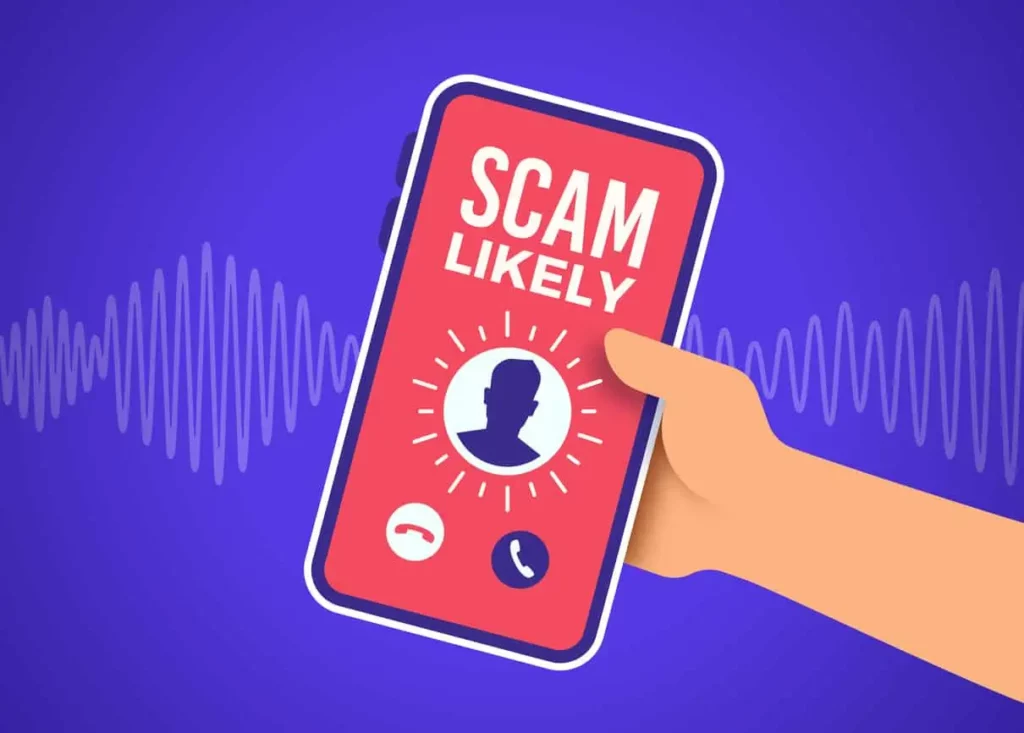
8 Memory Care Requirements That You Need to Consider Before Committing Your Loved One
Have you noticed a decline in cognitive and memory abilities as your loved one ages? In some individuals, this decline can be more pronounced, resulting

As you age, ensuring your safety and well-being becomes increasingly important. An area of concern is the prevalence of scams targeting vulnerable seniors. These fraudulent practices can cause severe financial and emotional harm to your family. So you must know the red flags and take proactive steps to stop scammers.
Criminals often target seniors because many live alone without anyone to help them discern potential scams. Not to mention, technology has made it easier to commit fraudulent activities that appear legit and believable from the surface. Without any help, seniors may easily fall into any of these scam traps.
In 2023, news about real scams is prevalent, and seniors must stay informed to protect themselves. Scammers engage in numerous types of scams, but the following are 5 of the most common ones you or your loved one should watch out for.
Criminals will call you and pretend they’re from Medicare or any health insurance provider. By using spoofing technology, they can manipulate the caller ID display on your phone to make it look like they’re legitimately from Medicare. Through a leaked data breach, these criminals will have your basic information.
They’ll call to warn you that your Medicare card is invalid and you that need a new one or that your Medicare is about to be canceled and you need to verify your identity. Then, they will phish for sensitive information like your Medicare number, address, bank details, and Social Security number.
In 2020, 45% of Americans were targeted by a Social Security scam in three months. Like the Medicare scam, criminals will pretend they’re working for the government to extract personal information from you.
However, if the calls are unsolicited, the caller threatens to take legal action against you if you don’t pay for an increase in benefits and warn you to refrain from telling your family about the call, you better hang up.
Lottery and sweepstakes scams are also prevalent in people of all ages. In 2020, Americans of all ages lost over $100 million due to these scams.
Scammers usually send a letter, email, or text informing you that you won millions of dollars and to call a specific number to claim the prize. Then, these scammers will ask you to pay money to cover the taxes. After you give the money, they’ll become unreachable. Adults aged 65 and older are the common victims of these scams.
It can be challenging to stop scams if it involves your family. However, if you receive a call that your grandchild was in an accident and you need to settle $7000 to get them out of jail, it’s likely a grandparent scam.
An imposter pretends to know your grandchild and informs you that your family member is in trouble but doesn’t want to involve the parents, so they approach you instead. They’ll ask you to settle some money to save your grandchild.
Loses to these scams have increased to $139 million in 2020. Isolated adults are the most vulnerable in romance scams. Fraudsters use dating sites, create fake profiles, and find seniors they can victimize. Once they’ve built an online relationship with you and gained your trust, they’ll ask you to send money to prove your love. This is likely a scam. Once you transmit the money, the scammers will disappear.

Between different age groups, scammers are more likely to deceive older people because of their financial status. Younger people usually have school debts or just starting to get jobs. Meanwhile, most older people have built wealth over the whole course of their career life, so they’re ideal victims. On top of that, cognitive disorders such as dementia make it challenging for seniors to think logically and stop scams. They’re also new to the internet. So if scammers call pretending they won a lottery, you’ll probably fall for it.
The basic strategy of scammers is to call, email, send a text message, or deliver mail. Since it has become easier to obtain basic information, such as name, address, and phone through the internet, their schemes have become more believable.
There are many different types of senior scams, but they often share common warning signs. Learning how to spot a scammer and these warning signs can help you identify and stop scams.
Watch out for suspicious websites, unsolicited phone calls, letters, text messages or emails promising extraordinary prizes, deals, or financial opportunities. Scammers often reach out to seniors unexpectedly, attempting to lure them into fraudulent schemes. If it sounds too good to be true, it probably is.
Legitimate organizations rarely ask for personal information, such as Social Security numbers or bank account details, over the phone or email. Scammers often pose as representatives from government agencies, banks, or reputable businesses, requesting personal information under pretenses. They may claim an urgent need to verify personal details or resolve an issue. Still, it’s important to remember that trusted organizations typically request such information through secure channels, not unsolicited phone calls or emails.
Scammers often create a sense of urgency, pressuring you to act immediately without thinking or seeking advice. They might use tactics like limited-time offers, imminent threats, or fear tactics to manipulate you into making hasty decisions. For example, they might claim that immediate action is required to prevent financial losses or portray a sense of urgency by mentioning the offer is available for a limited time. Scammers rush seniors to prevent them from carefully considering the situation or seeking advice from trusted sources.
Carefully read emails and letters and watch out if it’s poorly written, as scammers may struggle with grammar and spelling due to their origins or lack of fluency. Many scams originate from foreign countries, and fraudsters may exhibit noticeable language errors. Watch out for excessive grammatical mistakes, strange sentence structures, or inconsistent language use. For example, a scam email might contain improper grammar or obvious misspellings, indicating the sender may not be a legitimate entity.
Scammers typically ask for immediate payment through methods that are difficult to trace, such as gift cards or wire transfers. They often use emotional manipulation to convince you to pay up. For example, they might act as a distressed family member, claiming they need immediate financial assistance. They may also pretend to represent charitable organizations seeking donations for a cause. It’s important to remember that family members and reputable organizations would never demand immediate payment through untraceable methods or put undue pressure on individuals.
By familiarizing yourself with these warning signs, you can stop scammers successfully. Be vigilant and skeptical when approached with unsolicited offers, especially if any of these warning signs are present.

Scammers take advantage of misconceptions about seniors, assuming they’re more trusting or are lonely and vulnerable. They think seniors have limited knowledge about the latest technology or may be more inclined to be respectful and polite when talking to strangers. It’s essential to recognize that seniors are a diverse group with varying levels of knowledge and experience.
For example, some scammers may pose as tech support representatives and claim that the senior’s computer has been compromised and need immediate access to fix the issue. By relying on the stereotype that seniors are less tech-savvy, scammers hope to gain access to personal information or financial details.
Seniors are often targeted because they’re believed to have accumulated wealth but are less financially savvy. Scammers see seniors as potential sources of funds, investments, or inheritances. They may also take advantage of seniors’ desire for financial security or their willingness to support charitable causes.
For example, some scammers might pose as financial advisors. They will then offer exclusive investment opportunities promising high returns and target seniors looking for ways to grow their savings for retirement. By presenting themselves as trustworthy experts, scammers aim to gain seniors’ confidence and access to their finances.
For family caregivers or adult children, it’s critical to recognize and address these specific vulnerabilities without undermining your loved one’s independence or personal finances. By opening respectful conversations about fraud and prevention strategies, your loved one can make informed decisions and protect their finances.

Taking preventive measures to protect yourself distinguishes between a successful and an unsuccessful scam. Here are some practical tips to keep in mind:
Review bank statements and credit reports regularly for suspicious activity, such as unfamiliar charges or unauthorized transactions. For example, if you notice unexpected withdrawals or purchases from unfamiliar vendors, it could be a sign of fraudulent activity. By staying vigilant and promptly reporting discrepancies to your financial institution, you can mitigate potential losses and take immediate action to protect your hard-earned money.
You can stop scams by being wary of people coming at you with unsolicited offers and promising unrealistic returns. Be skeptical of emails or phone calls claiming you’ve won a lottery you didn’t enter or advertisements offering “once-in-a-lifetime” investment opportunities with guaranteed profits. Legitimate investments involve thorough research, professional advice, and transparent terms and conditions.
If you have social media accounts, ensure it has strong privacy settings. Scammers often gather personal information from social profiles to fit their deceptive schemes. Avoid publicly sharing sensitive details like your full home address, birth date, or vacation plans. Restrict access to your profile to trusted connections, and be mindful of who can view this information. Controlling your online privacy reduces the chances of scammers obtaining personal information.
Before engaging in business transactions, carefully research the companies or individuals involved in the offer. Verify their reputation, credibility, and track record. For instance, if you receive a proposal for a home improvement service, Google the company online, read customer reviews, and ask for references. Legitimate businesses will have a solid online presence, positive reviews, and verifiable contact information.
Don’t hesitate to speak up about these scams to your children or other family members. If you receive scam threats, share what happened and seek advice and strategies for identifying and preventing them. By fostering communication, you become more aware and empowered to make the right decisions.
These tips protect you from bad people who want to take your money. Trust your instincts and look for the red flags. Open conversations about scams with your family.

Fortunately, there are many organizations and resources to support seniors and minimize senior scam incidents. Here are a few of them:
If your senior loved one has fallen victim to a scam:

You are responsible for protecting yourself from scams and the financial loss associated with them. Recognizing the warning signs, having open conversations, and implementing prevention strategies can significantly reduce the risk of falling victim to scams.
If you live alone, a trusted friend or caretaker nearby can help you filter fraud and protect your wealth. That’s why Amy’s Eden senior care offers vetted caregivers, assistants, and caretakers to become watchful agents for you and help you block scams. Connect with us today for help.
Get care >

Have you noticed a decline in cognitive and memory abilities as your loved one ages? In some individuals, this decline can be more pronounced, resulting

When we think about healthcare for seniors, we might not think of sports therapists. They usually work with athletes and help them stay fit. However,

Are you considering physical therapy as a career option? Sometimes, you may or may not know what to expect once you become a certified physical

Do you find it harder to move around like you used to? Is chronic pain affecting your daily activities and overall quality of life? Do
